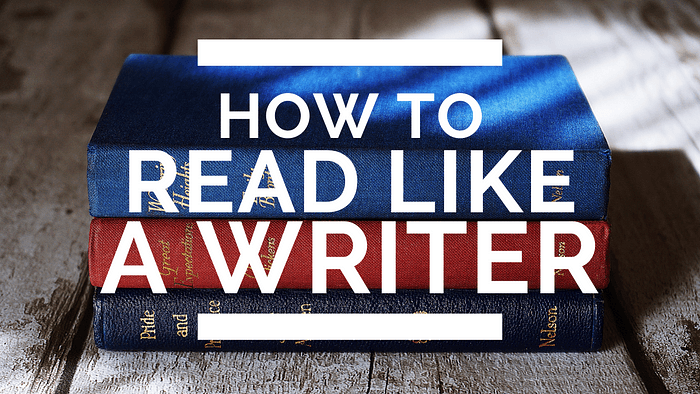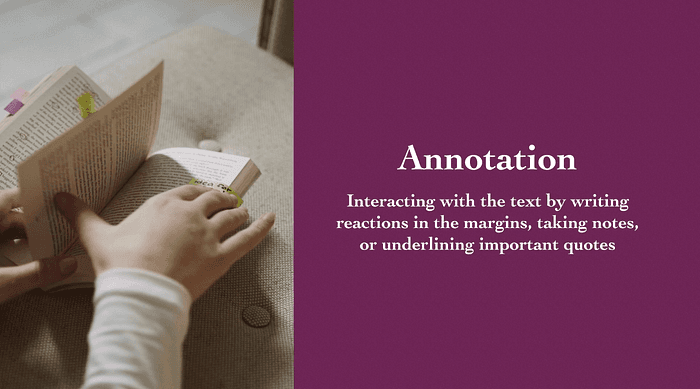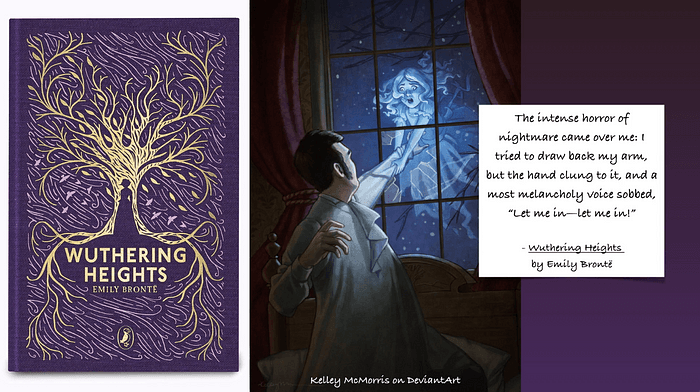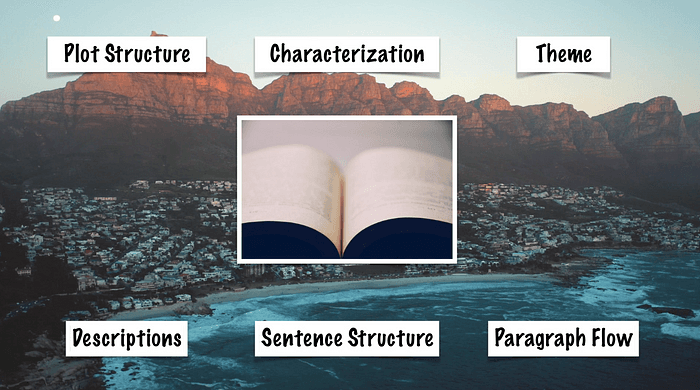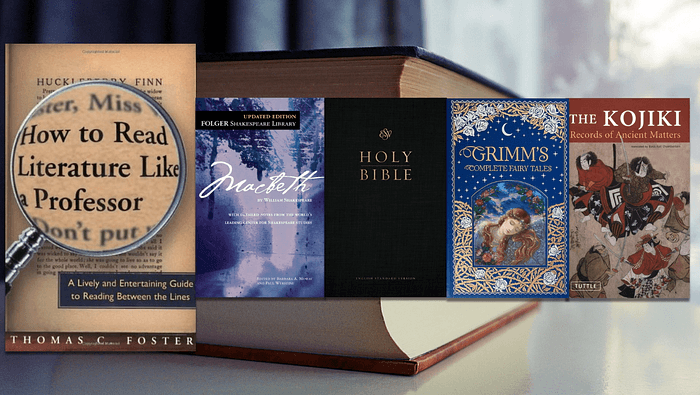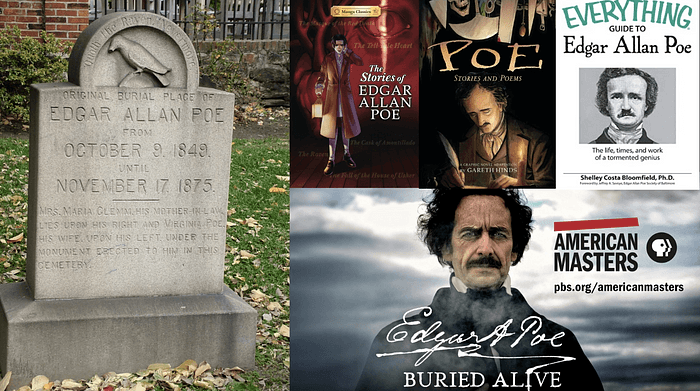Explore the World's Best Ideas
Join today and uncover 100+ curated journeys from 50+ topics. Unlock access to our mobile app with extensive features.
Overview: Read like a Writer
- Ask meaningful questions
- Articulate your opinions — and use evidence
- Annotate or keep a reading log
- Create something inspired by what you read
- Target specific writing skills you want to improve
- Examine the larger context
- Reread
60
377 reads
Readers fail when they allow themselves to believe the old mantra that fiction is the thing you relate to and writers the amenable people you seek out when you want to have your own version of the world confirmed and reinforced. That is certainly one of the many things fiction can do, but it’s a conjurer’s trick within a far deeper magic. To become better readers and writers we have to ask of each other a little bit more.
ZADIE SMITH
55
175 reads
Ask meaningful questions
- What are my favorite lines, and how do they make me feel?
- How does the author set the stage with her opening line?
- Since the author says the moon is her mother, what does the tone suggest about their relationship?
- What metaphor might I use to describe the same thing that the author described?
61
171 reads
Articulate your opinions — and use evidence
Write a 1 sentence summary of what the book was about and what I liked and didn’t like on a broad scale.
Then I’d spend a few sentences rating each metric: writing style, plot, characters, originality, intellectual value, and my personal enjoyment.
58
174 reads
Articulate your Opinions - Examples
- Writing style- “concise” or “wordy.”
- Plot- slow versus fast paced, boring versus riveting.
- Characters- How attached am I to them, if they felt 3D, real, dynamic. Or, if the author intended for them to be caricatures, how it effected my reading experience.
- Originality - How predictable the plot and dialogue were, or if the world-building felt too unbelievable. I’d spotlight elements I hadn’t encountered in other stories before.
- Intellectual value- Does it stimulate thought?
- Personal enjoyment: Did I not want to put the book down? Would I read it again? How did I feel after I finished it?
59
122 reads
Annotate or keep a reading log
The point is to capture what makes the text emotionally relevant to you
Whenever you open a new book, that experience doesn’t exist in a vacuum. You bring with it all of the stories you’ve consumed before, your own philosophy of the world, and your knowledge base or assumptions.
If you prefer a looser structure, keep a freeform reading log of your thoughts every few chapters.
56
103 reads
Create something inspired by what you read
It is possible to kill your enjoyment of storytelling if you go headlong into every book with a surgical knife. That’s why I find it’s best to read most books casually and just experience the story.
- Watch YouTube book reviews or interviews with the author.
- Create artwork inspired by the book. Write a short story or poem.
- After reading, watch the movie adaptation, and note the changes they made.
Create new art from the art you consume and continue the conversation.
57
104 reads
Target specific writing skills you want to improve
Narrow your focus to one of those elements. Smmarize each chapter to one sentence. In the end, reread your summary.
- What is the purpose of each scene?
- What character choices were most important/memorable?
- How did the focus of the story transform over time, and what were those turning points?
Choose a few passages that stand out to you
- Why does the passage call out to you?
- What narrative tools — word choice, repetition, sentence structure — is the author using to make you feel that way?
Put that learned skill into practice during your next writing session and focus on that single area.
57
78 reads
Examine the larger context
- There’s no such thing as a wholly original work of literature
- There’s a universal grammar of figurative imagery across literature
- The intended audience and purpose of the text can factor into your interpretation
55
96 reads
Reread
Rereading lets you get past your initial reactions to analyze why the story works or doesn’t work
55
114 reads
IDEAS CURATED BY
she/her | Cybersecurity Professional | Writer | Sharing what I learn to help others :)
Growth Apprentice's ideas are part of this journey:
Learn more about writing with this collection
Understanding the concept of the self
The importance of living in the present moment
The illusion of control
Related collections
Similar ideas
9 ideas
How to Launch a Writing Career: 9 Tips
jerryjenkins.com
5 ideas
I have forgotten how to read
theglobeandmail.com
Read & Learn
20x Faster
without
deepstash
with
deepstash
with
deepstash
Personalized microlearning
—
100+ Learning Journeys
—
Access to 200,000+ ideas
—
Access to the mobile app
—
Unlimited idea saving
—
—
Unlimited history
—
—
Unlimited listening to ideas
—
—
Downloading & offline access
—
—
Supercharge your mind with one idea per day
Enter your email and spend 1 minute every day to learn something new.
I agree to receive email updates

